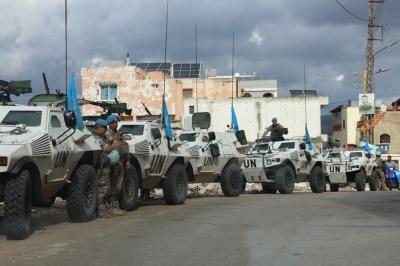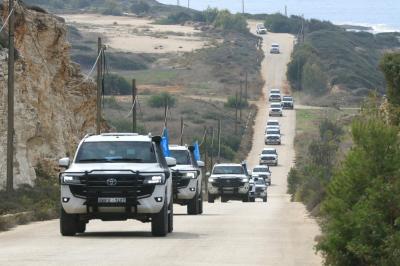Unlike previous conflicts in the Gaza Strip, the current war theater between Israel and the Al-Qassam Brigades has expanded in its first week to the West Bank. This expansion endangers the integrity of the internationally recognized Palestinian Authority and suggests the emergence of a new power structure.
In Israeli military operations, two distinct aspects are clear. On one hand, the main objectives of these operations are:
- To displace, even coercively, Palestinian populations from the Gaza Strip to realize the "Ben Gurion Canal" project, extending from the Gulf of Aqaba to the Mediterranean Sea.
- To eliminate the Al-Qassam Brigades, the armed wing of Hamas, in order to transfer control to an already weakened Palestinian Authority.
- To prevent any flare-up on the southern front of Lebanon, considered the most risky for Israel.
On the other hand, a second aspect of the operations now concerns only the West Bank, a territory already under Israeli control. However, the daily escalation of confrontations between Palestinians on one side, and Jewish settlers and Israeli security forces on the other, significantly complicates the management of the situation and makes stopping hostilities almost impossible. Nevertheless, Israel relies on its ally, the Palestinian Authority, to help restore order.
It's evident that the Palestinian Authority is gradually losing control in the West Bank if it continues to provoke the Palestinian people. Moreover, if Israel were to lose its foothold in the West Bank, there is fear that the unrest could quickly spread to neighboring Jordan.
West Bank on the Brink of Explosion?
Reflecting on the past week, marked by an operation of the Israeli forces that resulted in the death of eight Palestinians during an incursion in Tulkarem, West Bank. This sad event brings the number of Palestinian victims since the start of the "Al-Aqsa Storm" operation to 170. Concurrently with these tragedies, reliable information indicates an expansion of territories seized by Jewish settlers in the West Bank.
The situation in the West Bank, under a government coalition led by Benjamin Netanyahu and dominated by far-right political parties, has become increasingly mired since early October. The growth of Israeli settlements and movements in favor of annexing large portions of the West Bank are evidence of this deterioration. Meanwhile, the Palestinian Authority, struggling to consolidate its grip on the region since its inception, remains weakened, undermined by corruption, and fragmented, unable to contain provocations by Jewish settlers.
Furthermore, Palestinian Authority President Mahmoud Abbas, 88 years old and beyond his term since early 2009, is witnessing rival factions within Fatah vying for leadership of the Authority. These divisions will inevitably extend to the Palestinian security forces in charge of Zone A in the West Bank, where the Authority exercises total civil and security control, and Zone B, where the Authority administers civil affairs under Israeli security surveillance.
This dynamic creates a favorable context for the mobilization of young Hamas members and other factions in the West Bank, thereby intensifying clashes with the Israeli army and settlers. The implications? A continuous and increasing weakening of the Palestinian Authority.
Jordan in Danger
The stark difference between the Gaza Strip and the West Bank is telling: despite the fierce resistance of Palestinians in the Strip, the conflict can be more easily contained due to the small geographical size of the region. The possibility of completely encircling Gaza limits movements towards Sinai, where Egypt maintains strict military control. Conversely, the West Bank, sixteen times larger than Gaza and densely populated, increases the likelihood of an Israeli offensive aimed at pushing Palestinians towards neighboring Jordan, where more than half of the population has Palestinian roots.
Is the Hashemite kingdom really threatened? After the 1948 catastrophe, the West Bank came under Jordan's jurisdiction until its annexation by Israel in 1967 following the Six-Day War. Rather than surrendering, fighters from the Palestine Liberation Organization (PLO) and many civilians sought refuge in Jordan, bolstering the organization's presence in the country. In 1970, the PLO had established itself as a state within the Jordanian kingdom, initiating a struggle to overthrow the monarchical regime. King Hussein ibn Talal responded decisively during "Black September," with the Jordanian army defeating the PLO and forcing it to retreat to Lebanon.
The events of 1970 have deeply marked Jordanian political psyche and strategy, amplifying leaders' concerns since 1967 that the Israeli-Palestinian conflict in the West Bank directly threatened the stability of the Hashemite kingdom. These concerns have intensified in recent years with the failure of the peace process, the growth of Jewish settlements in the West Bank, and multiple conflicts in Gaza, despite the peace agreement between Israel and Jordan in 1994. This context has prompted the current King, Abdullah II, to criticize Israel more firmly since the "Al-Aqsa Storm" operation.
The Jordanian government is aware of internal pressures and responsibilities in the face of the threat posed by the Palestinian situation to the country. However, its options are limited as a small state, without any Israeli-Palestinian resolution. Since the start of
the "Al-Aqsa Storm" operation, Amman hoped to contain the conflict to Gaza, as past regional conflicts had not affected security in the West Bank, and therefore in Jordan. Unfortunately, it's now clear to all that Israel seeks to alter the situation in Gaza, thus breaking the fragile balance in the West Bank, although Hamas does not wish to differentiate the situation between the West Bank and Gaza.
In this context, Jordan has long feared the rise of Hamas and its supporters, especially since King Abdullah II warned in 2004 of the emergence of a "Shiite crescent" stretching from the Persian Gulf to the Mediterranean Sea, threatening regional stability. With this crescent at Jordan's doorstep from Iraq in the east, Syria in the north, and the West Bank in the west, the question remains: Will Iran gain a strategic position at Jordan's borders?
Please post your comments on:
[email protected]
 Politics
Politics















